In Photos: Documenting South African Jazz With Tseliso Monaheng
We showcase Tseliso Monaheng's photos of South African jazz.
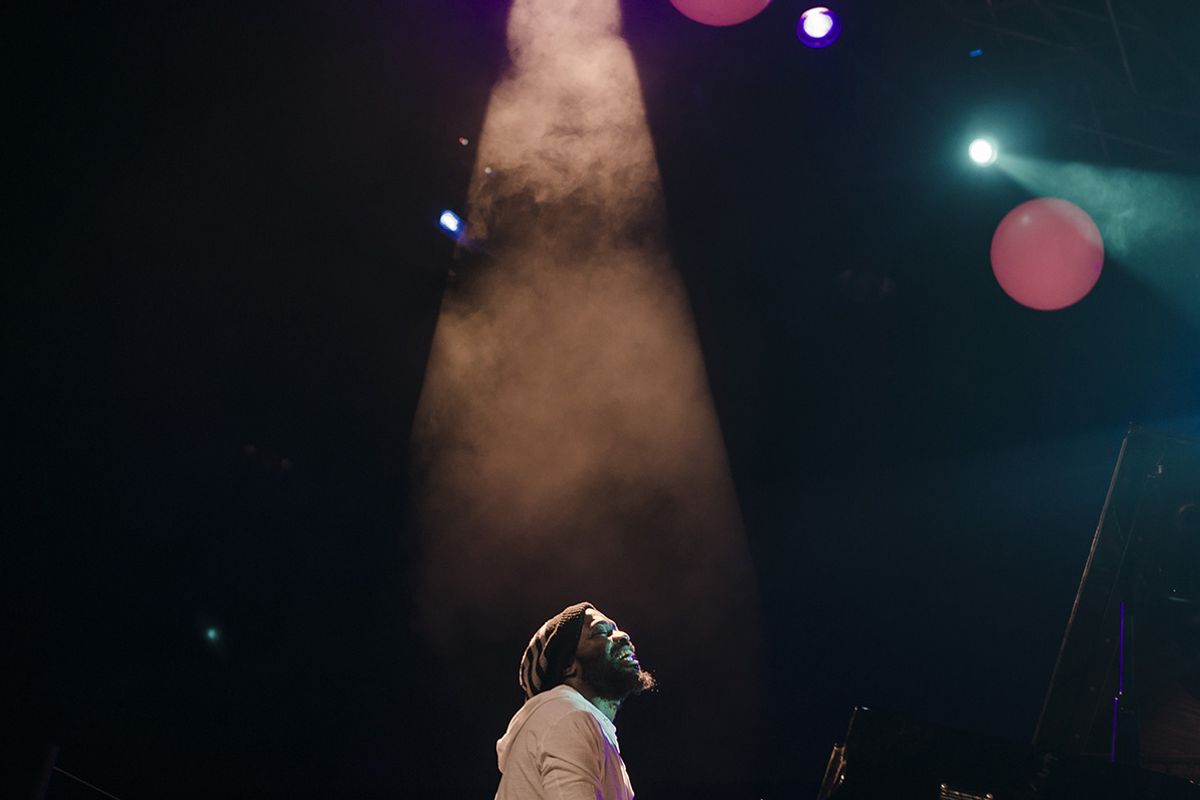
There's nothing Lesotho-born South Africa-based Tseliso Monaheng doesn't do—when not writing killer pieces on African hip-hop, he's either dissecting jazz, photographing performances all over the country, or shooting documentaries and EPKs for your favorite jazz musicians.
His work has appeared on City Press, Sunday Times, Mail & Guardian, Mahala, Africa Is A Country, OkayAfrica, and a whole lot more. Be sure to check out his website, too.
His recent work is the EPK for South African jazz musician Thandi Ntuli's latest albumExiled.
Monaheng has been documenting the Joburg live music scene for the past few years, and has an extensive collection of photos of jazz musicians in their element, both on stage and in studio.
In the interview below, he tells us about his love for the internet, his hatred for the media industry, hanging out with hip-hop producers, and the possibility of publishing his own book, among other things.
How did you get into documenting SA jazz?
I don't know, man. I just love taking pictures, and going to live shows. And when you do that, you start meeting people, right.
You're from Lesotho. Did you start there?
Lesotho doesn't have a culture of live music. At least when I was growing up, you could go to shows. But at some point, that kind of died out. I was just a rap n*gga—rapping, but also, mostly, just following cats around. I still have footage from back in the day of my dudes just rapping in cyphers. So I think that's where it started. So I just do that almost everywhere I find myself. Ten years ago, I was in Cape Town, checking out the rap and graf scenes. I guess it's just my fear of being bored. And also my own anxiety of being in public and not really being a likeable person. So I will arrive around a group of people… 'cause I'm me, man, I will say stuff that some people might find weird. So when you are on your camera, you don't need to speak to anyone.
[In Cape Town], I would always go to Zula [Bar], the Mahogany Room, and people would ask 'why do you have this thing (camera)?' And I wouldn't really know how to answer that. But now I've kind of come to define it because I now have a body of work that defines what this can become.
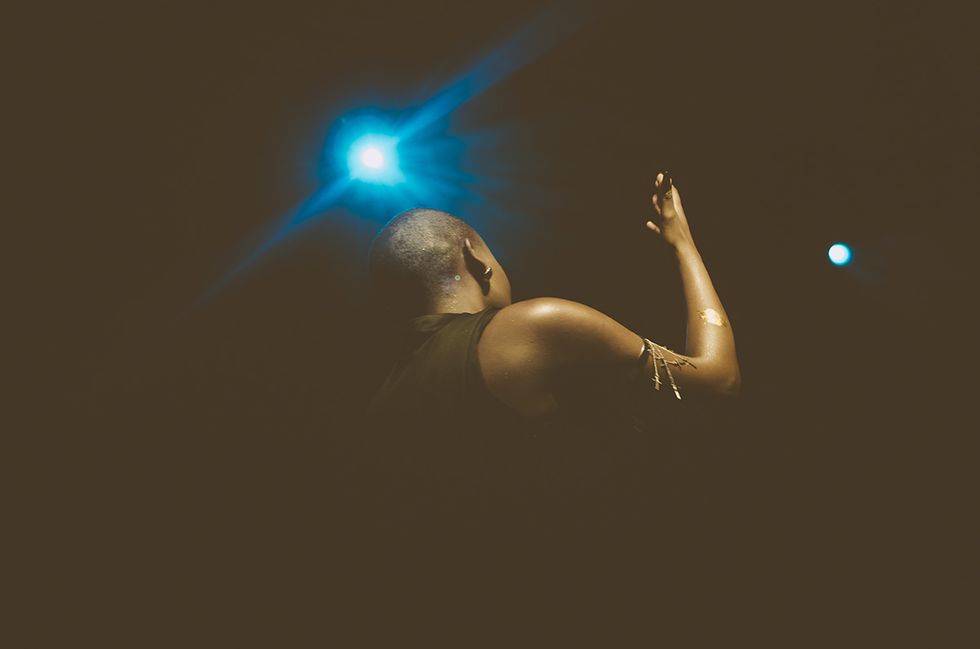
When did you fall in love with jazz?
I grew up to it. But South African jazz in particular, it was Zim Ngqawana's Zimphonic Suites, and I was still making beats around 2002. My dad got that shit. But even before that, there was Sipho Gumede and Jabu Khanyile. And also just listening to SAFM.
Were you sampling that album?
I sampled the fuck out of that album. I still listen to it, and think 'I used that.'
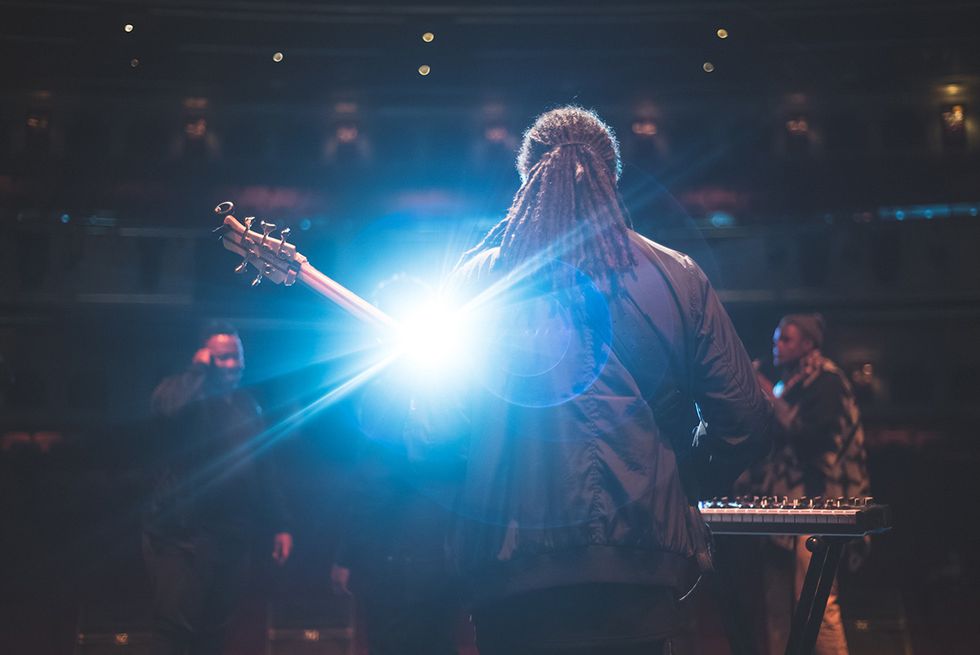
You've shot a lot of stuff for artists like Thandi Ntuli, Msaki, Johny Cradle etc. How do these usually come about?
Thandi, I've always loved her music. I remember the one night, she was performing in Khayelitsha, and we just trekked there. We didn't even know the hood, but we checked that shit out. So I was still checking out Thandi until 2014, and I was now in Joburg.
So it's just building relationships and maintaining that level of respect for people. With Msaki, I hollered at her on SoundCloud before I even met her, and then met her later on that year at a festival. And when we came back we mapped out what we wanted to do, during a trip from Limpopo to Joburg.
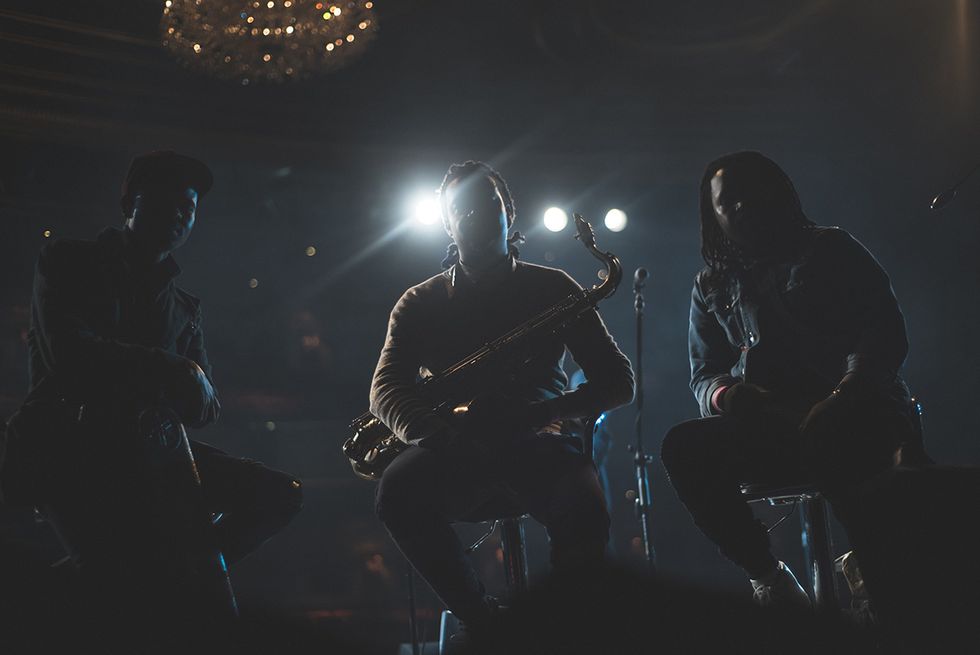
Your recent project with Thandi is the EPK and cover for her latest album Exiled. The cover looks like a spontaneous image, how did it come about?
We drove out to Mpumalanga for that shit. She told me when she started working on the project that she wanted it to have images, and she would like me to shoot. I'm never really a fan of using the same [locations] everyone uses. In Jozi, for instance, everyone pretty much uses the same spots. I happen to travel a lot; I see the value in making work in those places. I had shot some stuff in Mpumalanga, and I showed that to Thandi. And when the time came to do the thing, we just traveled out there, and did the thing.
Was that a posed image?
Nah, G. Very little of my work is posed. Because I don't know how to direct people. I mean, I do, but that's boring, because your ideas are limited. So if you direct someone you are always going to come up with the same feeling. So that thing was literally me saying 'how about you just stand there and look cool?'
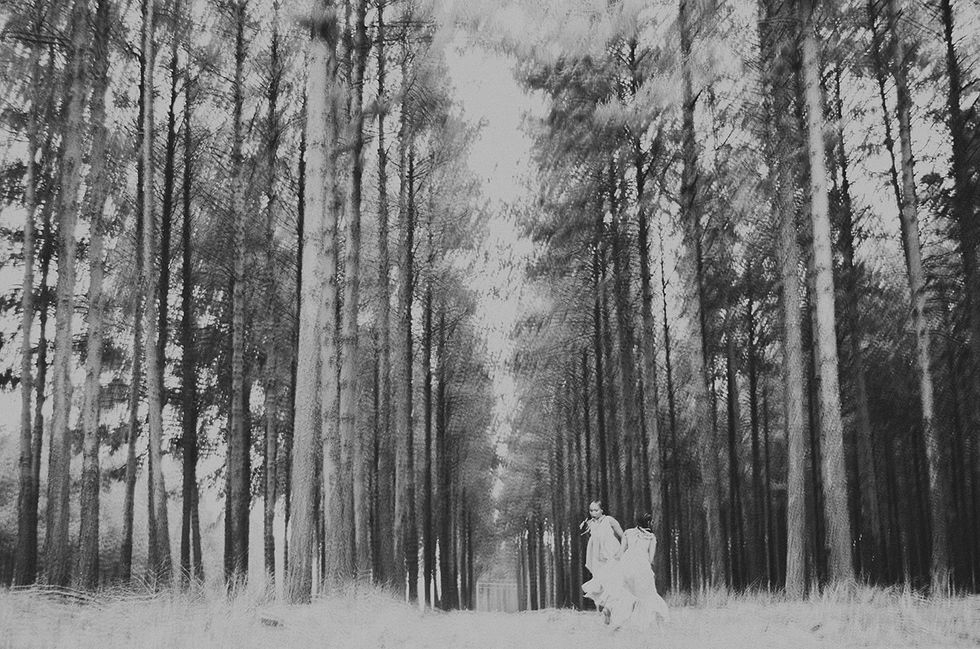
And you've been doing a lot of work in the hip-hop scene. But when it comes to shooting for artists you normally do it within the live music scene? Why aren't you doing as much work with hip-hop artists?
I think it's because they (jazz artists) are not famous, so they're still approachable. You can suggest shit to them and they will listen to you. Dude, what I'm doing now, I tried to do it with rap cats. Even cats that aren't known. But there's thing I encountered. I remember one of the homies, I was like 'you guys are performing at Back To The City, how about we do this thing where I come capture the rehearsal and the next day capture the performance, and we can see what comes out?' And n*ggas weren't tryna hear me. And I'm not one to be stuck on one idea. So when the live music thing started happening, I ran with it.
The hip-hop and jazz scenes in SA are very different in my opinion. Can you draw a contrast between the two?
For me, jazz is like hanging out with hip-hop producers because you're always learning. Hanging with a hip-hop producer, that dude knows where to download the latest plugins. Rappers will tell you about some shit J. Cole did, and you're like 'dude how are you here but know so much about what's going on all the way?' So that quest for knowledge, I'm very much attracted to that.
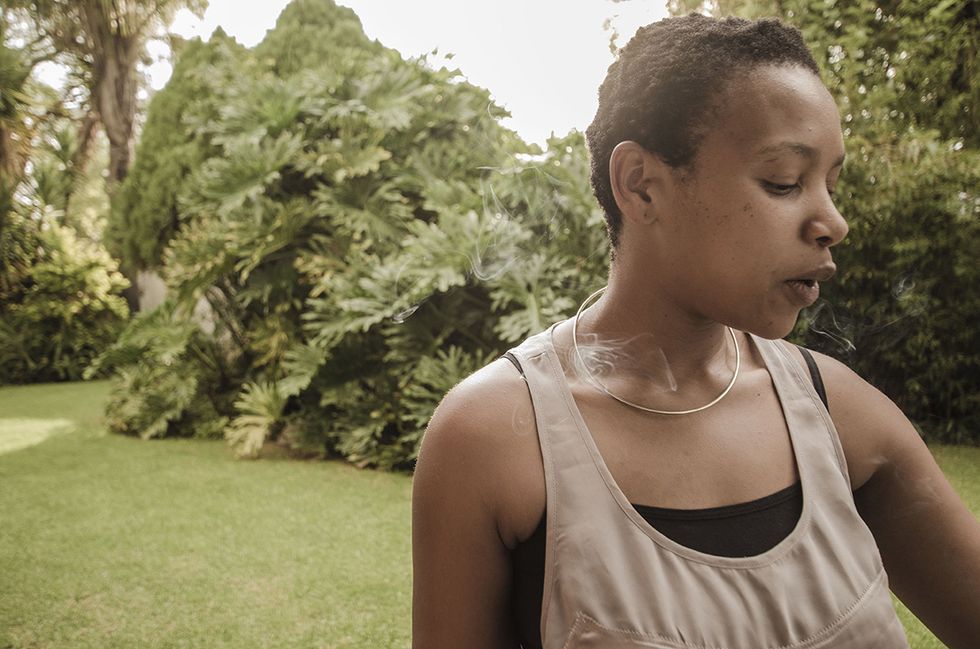
Do you have a live music venue that you like shooting at?
Festivals. Actually no, because they have that first 15 minutes rule. There's always something. Maybe the (now-defunct) African Freedom Station.
Any specific reason?
It's just black people being beautiful in this space that doesn't feel like it was built for white people.
With your images, I feel like you like things that aren't perfect. For instance, if an image comes out noisy, you never try to clean it up.
That comes from my history with subcultures. I grew up to heavy metal… and that's after jazz and reggae. I grew up to skateboarding culture, and their aesthetic is so raw, so I carry that with me. And also just fucking with artists—cats like Fuzzy Slipperz, who encourage you to pay attention to certain things, do shit that no one else can recreate. Also I think it's important to capture a feeling for me, as opposed to something that is aesthetically pleasing but within certain confines. For instance, when I send my shit out to papers, they always ask for a color image, and I ask why. So all these conventions, I'm very much anti that. It goes beyond my photography; it extends to who I am as a person.
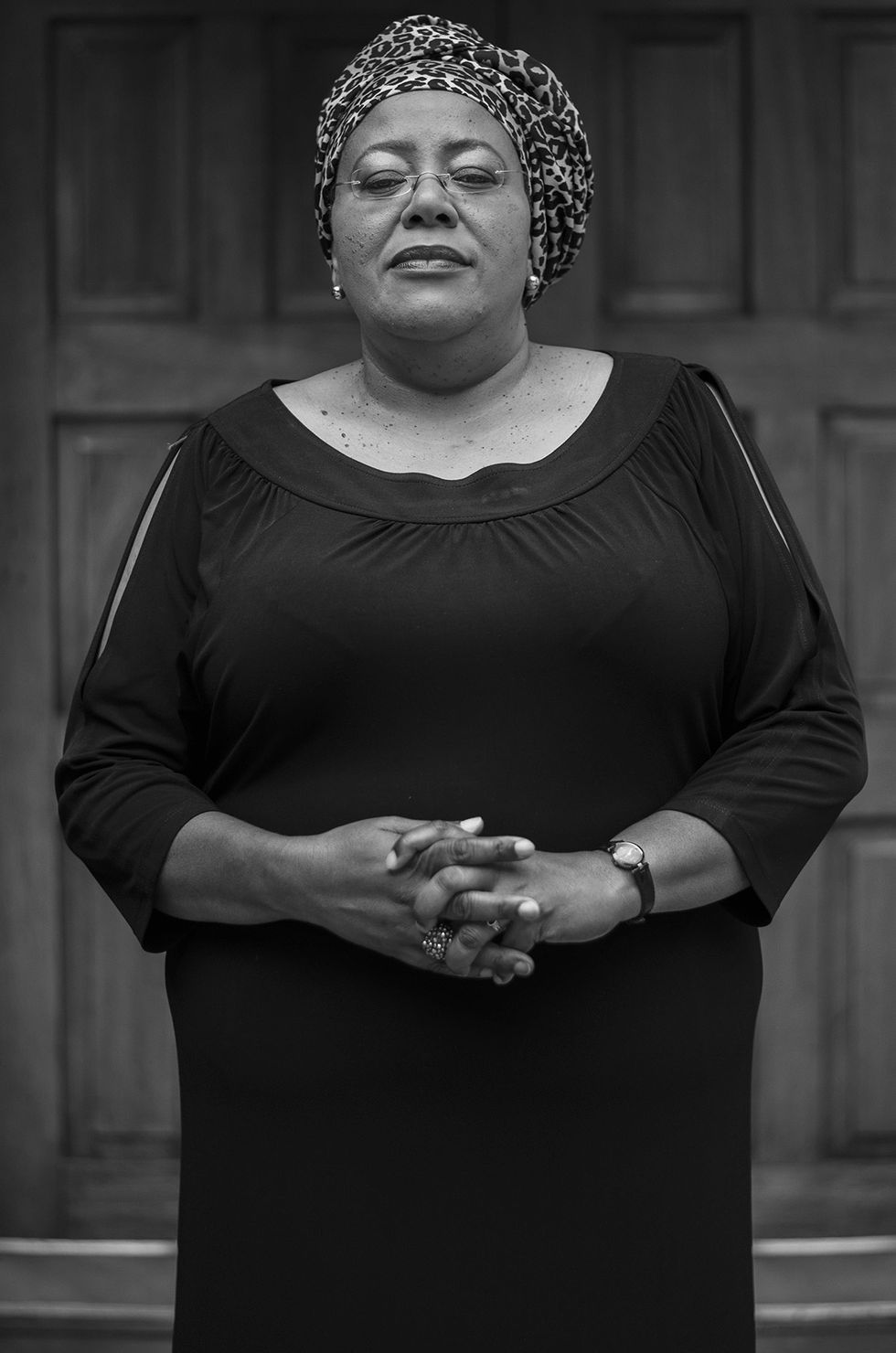
You do a lot of these things online—for instance your SA Hip-Hop 2014 series on Africa Is A Country, #RespecTheProducer, and you are using the internet to almost its full potential, but you are operating in a space that's still, in my opinion, very backwards. How are you dealing with that?
That shit doesn't faze me. I study people. I was just reading about Sun Ra. That n*gga was future—playing synths in the 50s, no one was doing that. But somehow he knew that that shit was going to be monumental at some space in time. My emphasis on doing shit on the internet is firstly because no one will publish me. Pretty much. I'm doing a lot of shit, and no one sees it. But I'm cool with that because I know that the work I'm producing, at some point in time it's gonna be definitive. Cats will be like 'oh shit. So this is what this n*gga was doing all this time when he was carrying that fucking camera.'
It also just comes from my training in all things technological; I kinda know how that world works. And I understand how to do it. And since I was a kid I was on the internet. So that makes sense, in an environment and climate where you can see that everything else is collapsing. And the internet is the only thing that people, especially in the African continent, have control over.
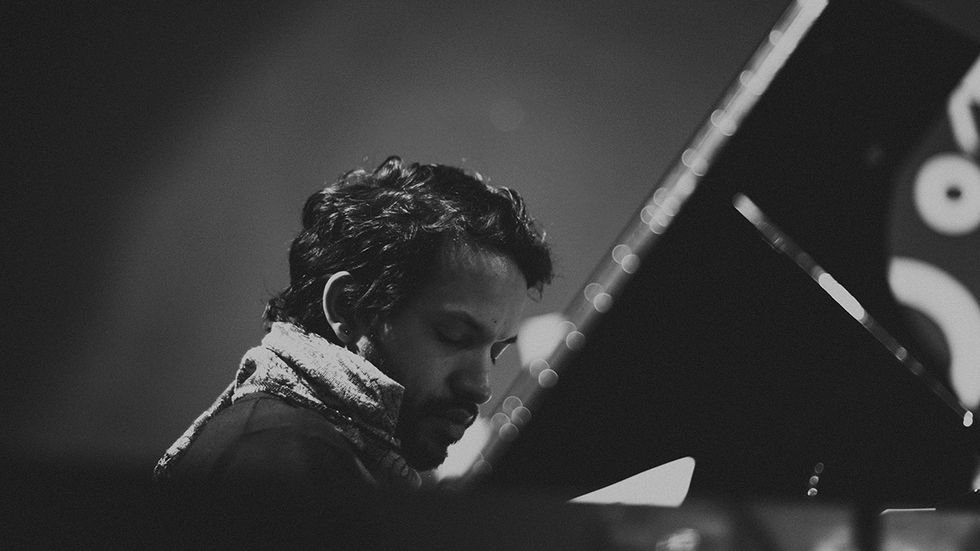
Talking about people not wanting to publish your work, have you also been turned down by book publishers?
Yeah, man. I'm not white, dawg, and I'm not from here (South Africa). So I'm not even expecting to be warmly received, and I don't even have hard feelings when these things happen. And I'm reminded everyday that I don't belong, so it's like 'am I gonna keep bitching or be in my corner and just create?' And I choose to create. Otherwise, it's fucking depressing if you think about it. I was at this publisher last year, and they gave this excuse about having this huge backlog, and you check out everyone on their catalog, except for this one cat bra Andrew Tshabangu, is white. And then you go to galleries, your work doesn't fit what they tryna do. Then you have black curators, who know you and what you are about, but they won't even think of you. But then you also have cats like Keleketla, Pan African Space Station—really cool collectives that are fucking with you, and I guess that's why I'm not fazed because my dudes who we share the same chronology of childhood with, they looking out for you. They may not be glamorous or big, but they're my people. We speak the same language and they have created a home for me within their home.
You are very vocal about the media industry, you have a lot of reservations about it.
I don't have reservations, I fucking hate it.
Oh yeah. Why?
Because, man, it's racist and it's blind to its own fucking racism. You see these editors going back and forth with people who are calling them out. Adriaan Basson was tryna hide that his whole organization are a bunch of racists who pick at the lowest hanging fruit—you pick the few black women in your organization and make an example out of that, so these fucking k*ffirs can be kept in check. And we have many instances of that. N*gga, I came into this fucking industry, they kicked out Percy Zvomuya, Niren Tolsi etc, from the M&G—the best writers that you have, you gonna let them go?
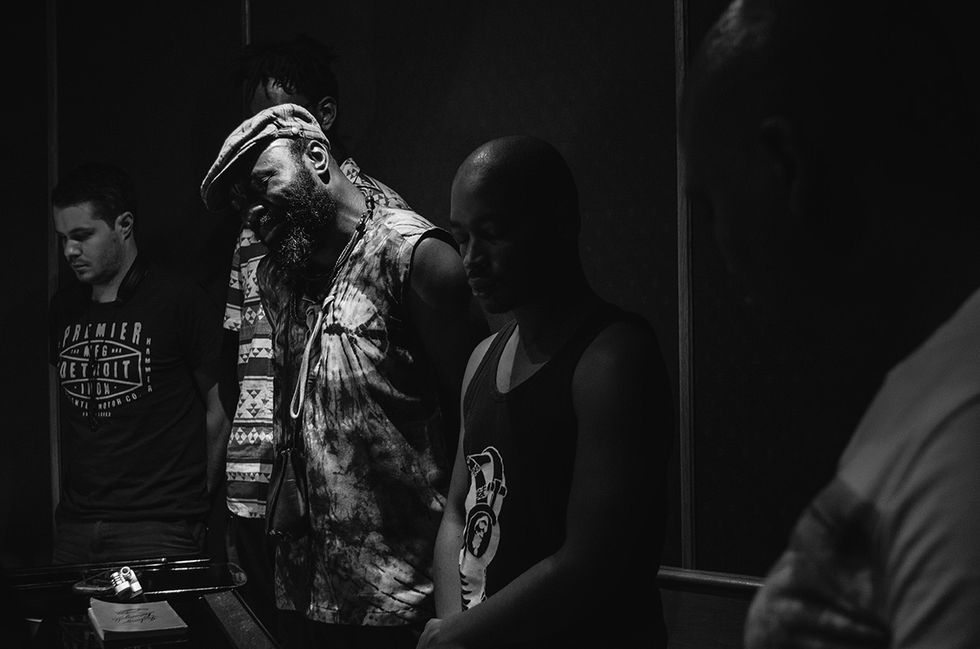
And you telling me that I should be fucking quiet because you paying me or publishing a story of mine every four months? N*gga, fuck you. And people go into these offices and remain quiet until they get the axe, then they start talking. Nah, that's not me.
I despise this industry. This writer talks some shit about that writer, yet they're buddy-buddy, I'm like, man, fuck y'all. Also because they act like they don't realize their own power and how they're misleading people.
Do you think the work you do is taken for what it actually is. I mean, I don't see you on panels, I don't see you at Abantu Festival. Do you feel it's because you are writing about the arts that people don't take it as seriously as they would if you were writing about black pain, for instance?
I don't know, but what I will say is it's always important to pay attention to the people who are paying attention to you. So if you bring up an Abantu for an instance, we did a panel at the Keleketla thing. That to me is worth talking about. So being included in panels, it's also like what am I valuing? I don't value getting famous, that's not me, b. I just wanna be rich and help out my friends. All that other shit, that's Joburg shit, that's big city life shit. I'm from the hood, G, and that's my frame of reference. All this bling shit, I'm like… I'm still very much for community, and I feel like what happens in these spaces, it's very much against the spirit of community. And I'm not talking about community on some hotep shit. I'm talking about community like 'do you have 10 bucks for me to load some airtime and send these important emails?' That, to me, is community. I don't sense that in those spaces, so I don't crave them. But I also have access to those spaces, and I know the people who organize these things, so it's like 'cool you ignore me, but I will be there because someone assigned me to go shoot or interview someone there.' So it's like, 'okay, have fun ignoring me, I'll be there.'
Can you tell me the story behind this Bra Hugh image?
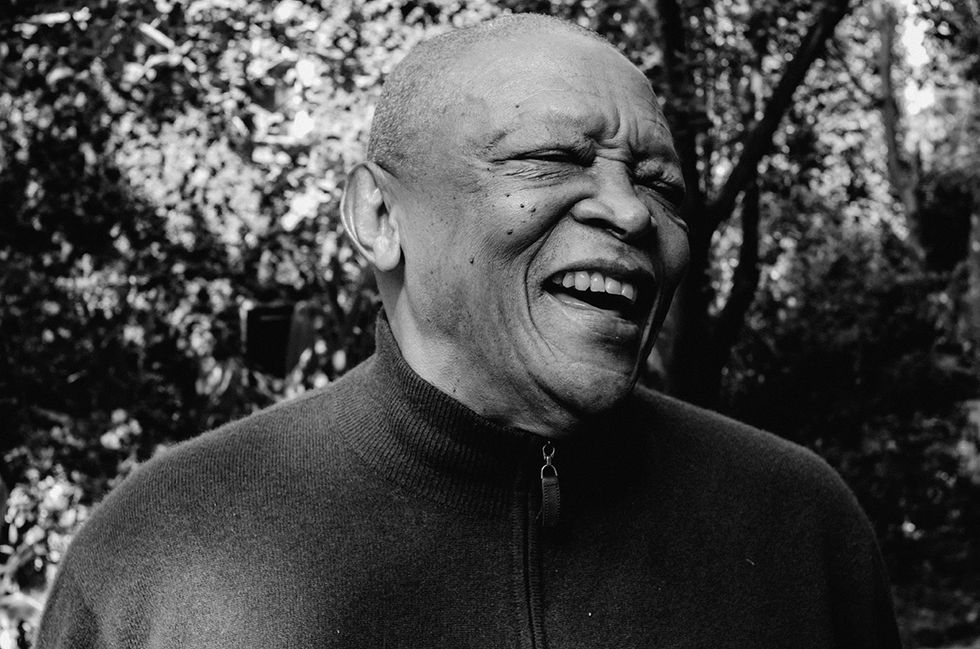
I was invited by Percy Mabandu one day saying he had an interview with Bra Hugh for BLQ (Blaque Life Quarterly) in some hotel in Rosebank. When we got there, we were told he wasn't there yet, so we waited. When he pulled through, he greets everyone. I've always wanted to interview Bra Hugh, but never could. I was always around him. We go outside and Percy does the interview, I'm listening to the OG spewing OG shit. And then after the interview, we just start talking—he's telling me about this project that he's working on about morena Moshoeshoe (the founder of the Basotho nation). That's what I liked about Bra Hugh; he was still striving for higher learnings, and he was practicing everyday as old as he was.
So I start snapping the images. Someone cracked a joke and he was laughing, and then I captured that.
Do you have an end goal with the images you have? Like publishing a book, exhibiting?
Nah. I have ideas. I've been reading a lot about cats who've published their own books in the past. This one doctor who just spent years interviewing people who were around John Coltrane and just put out book. This other cat, Ernest Cole… So I'm always checking out what these cats have done. But I want to do it myself or with someone who's willing to put a lot of money behind it, because I'm not trying to be the guy who gets a publishing deal, but you're not getting money, someone owns your work, and it gets ugly like that.
Also it's about memories of black people, and it's about being able to access these things where you don't have to pay Naspers/Media24 to publish a Miriam Makeba image because they bought the DRUM catalog.
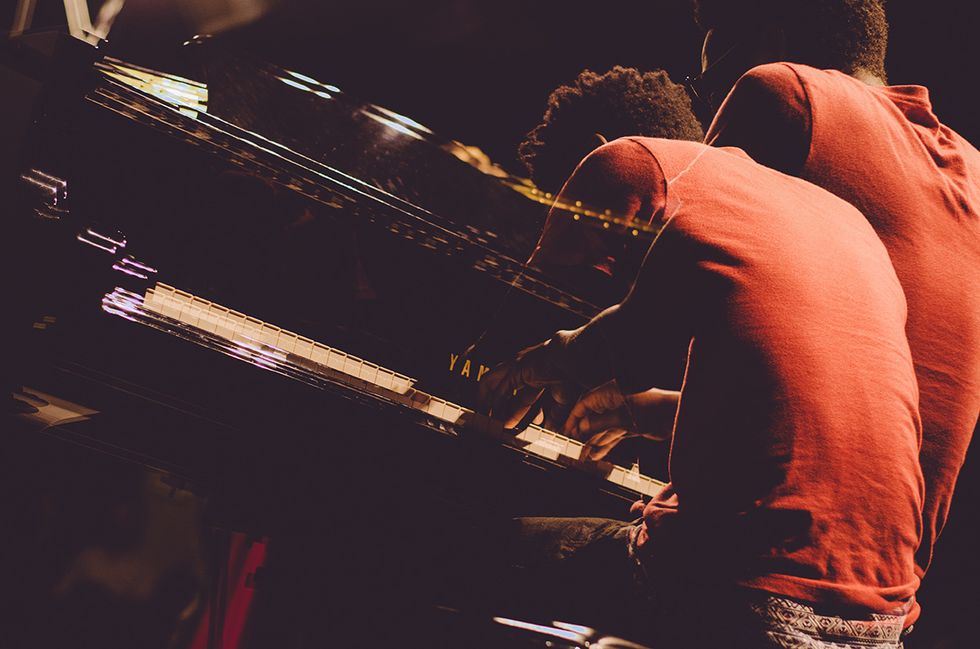
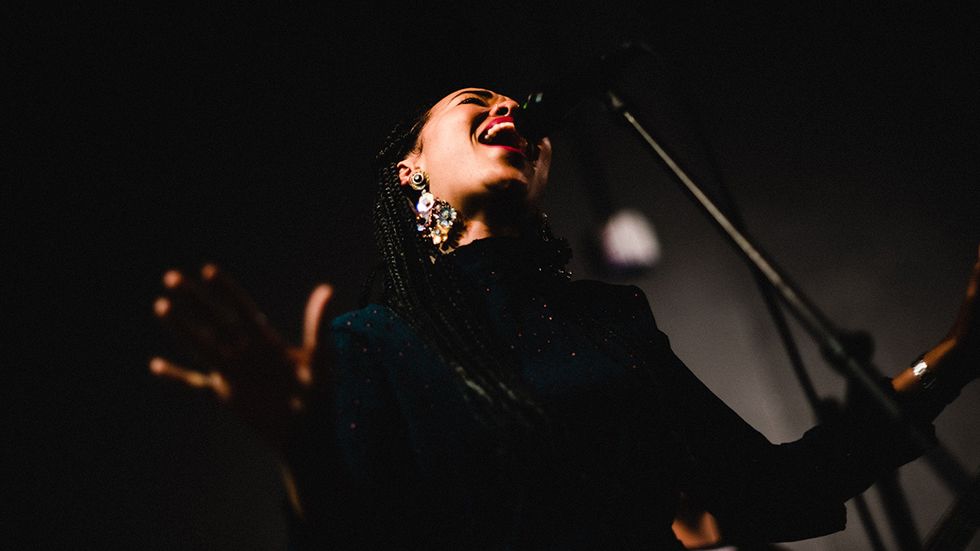
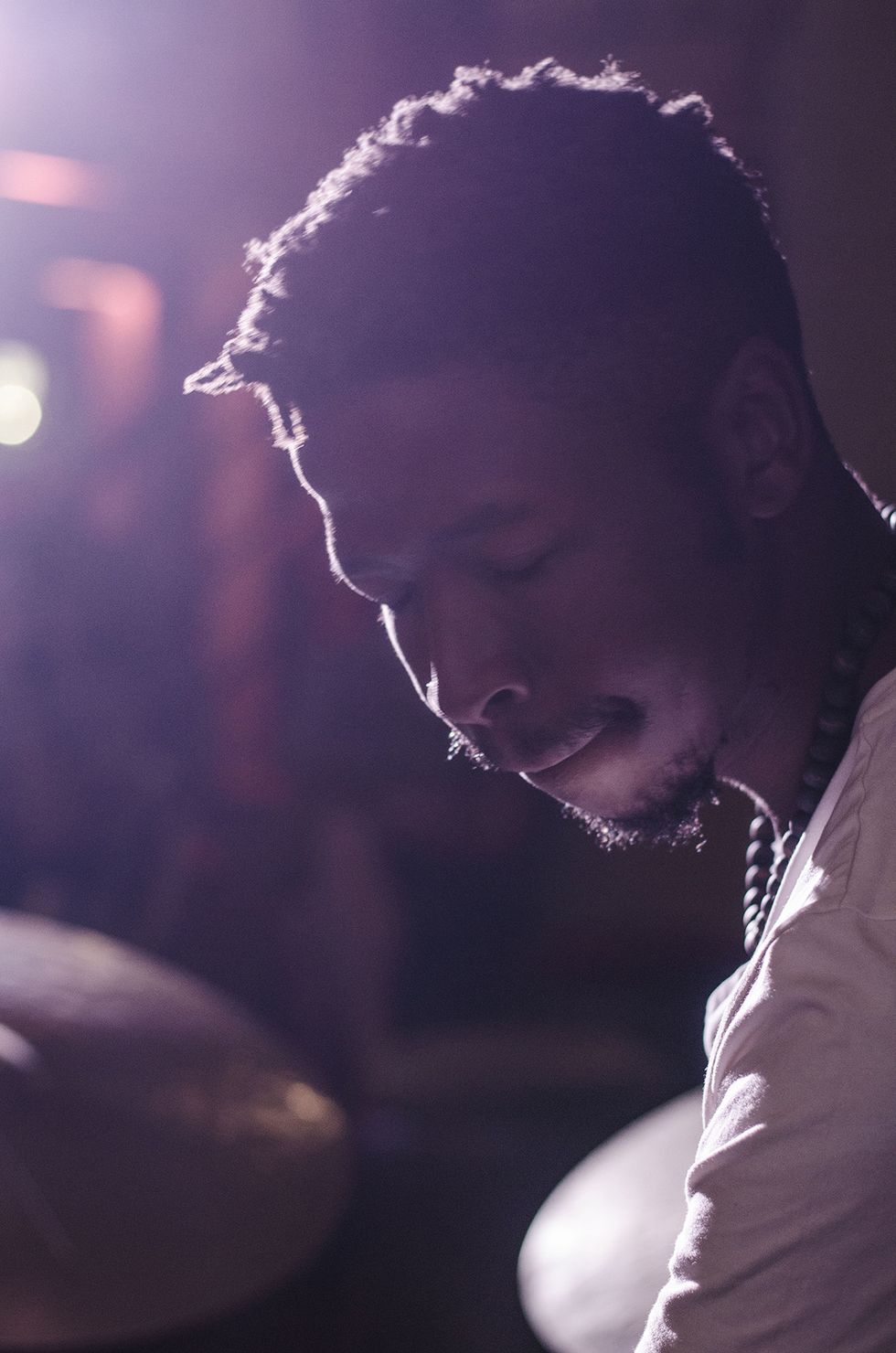

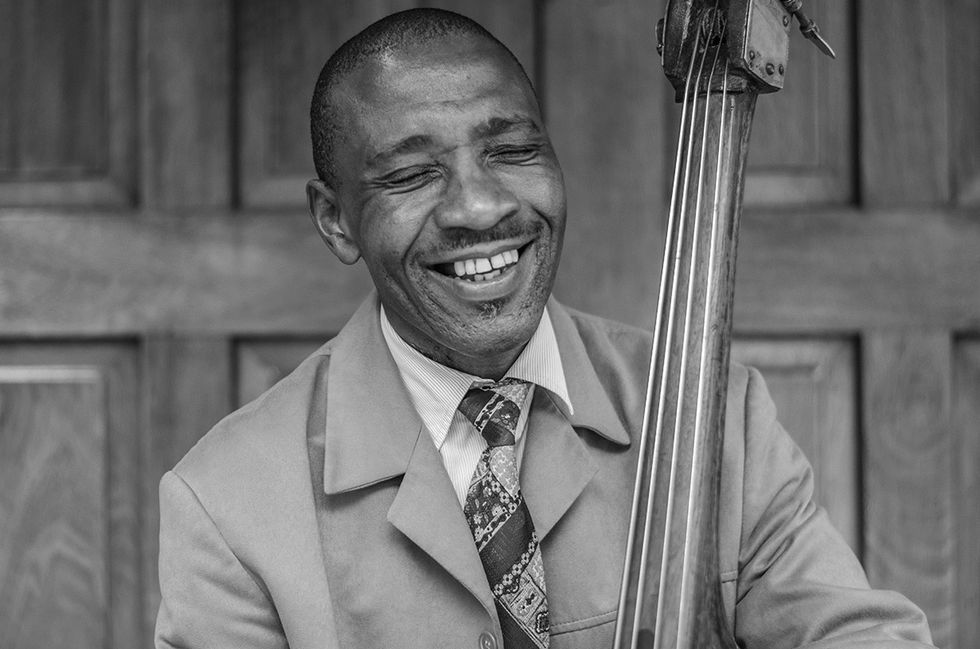
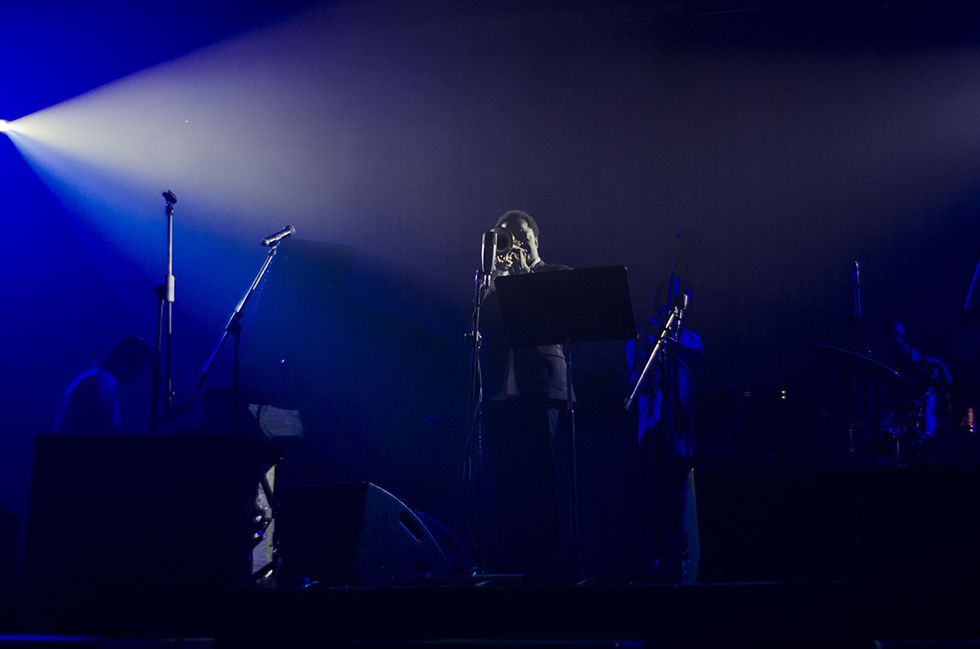
For more of Tseliso Monaheng's work, check out his website and Facebook and Twitter pages.
- Asher Gamedze's Debut Is an Exploration of Continual Motion - OkayAfrica ›
- Kazi Ya Sanaa’s Debut EP ‘Prephase’ Is Rooted In Nostalgia - OkayAfrica ›
- South African Jazz and Opera Singer Sibongile Khumalo Has Died ›
- Interview: Bokani Dyer Plays Across Genres Without Compromise in New Album ‘Kelenosi’ - OkayAfrica ›
- In Photos: ‘Indaba Is’ Recording Sessions - OkayAfrica ›
- 5 South African Photo Books to Check Out - OkayAfrica ›
- South African Jazz Artist Nduduzo Makhathini Releases Highly-Anticipated Blue Note Records Debut - OkayAfrica ›
- Interview: South Africa's Nduduzo Makhathini On His Upcoming Blue Note Records Debut - Okayplayer ›
- The 10 Best South African Jazz Albums Right Now - Okayplayer ›
- Afrikan Freedom Station Returns to Johannesburg's Cultural Scene with More Life - Okayplayer ›

